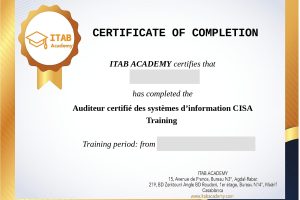Mastering Digital Marketing: A Comprehensive Training Guide**
In today’s digital age, the ability to harness the power of digital channels and strategies is crucial for businesses looking to thrive in a competitive marketplace. Digital marketing training provides individuals with the knowledge, skills, and tools necessary to create effective online marketing campaigns, engage target audiences, and drive business growth. In this comprehensive guide, we’ll explore the key components of digital marketing training and how it can empower individuals to become proficient digital marketers.
**1. Understanding Digital Marketing Fundamentals**
– Introduction to Digital Marketing: Explore the evolution of digital marketing and its significance in today’s business landscape.
– Digital Marketing Channels: Learn about various digital channels, including websites, search engines, social media, email, and mobile apps.
– Digital Marketing Strategies: Understand the principles of digital marketing strategies such as inbound marketing, content marketing, social media marketing, and search engine optimization (SEO).
**2. Developing a Digital Marketing Strategy**
– Defining Objectives and Goals: Learn how to set SMART (Specific, Measurable, Achievable, Relevant, Time-bound) goals for digital marketing campaigns.
– Target Audience Identification: Understand the importance of identifying target audiences and creating buyer personas to tailor marketing efforts effectively.
– Competitive Analysis: Conduct competitor research to gain insights into market trends, customer behaviors, and industry benchmarks.
– Creating a Digital Marketing Plan: Develop a comprehensive digital marketing plan outlining strategies, tactics, and timelines for achieving marketing objectives.
**3. Implementing Digital Marketing Tactics**
– Website Development and Optimization: Learn the basics of website design, usability, and optimization to create user-friendly and search engine-friendly websites.
– Search Engine Optimization (SEO): Understand how SEO works and learn techniques to optimize website content, structure, and backlinks to improve organic search rankings.
– Content Marketing: Explore content creation strategies, including blogging, video marketing, infographics, and guest blogging, to attract, engage, and retain audiences.
– Social Media Marketing: Discover how to leverage social media platforms such as Facebook, Instagram, Twitter, LinkedIn, and YouTube to build brand awareness, engage audiences, and drive traffic.
– Email Marketing: Learn how to create effective email marketing campaigns, including list building, segmentation, personalization, automation, and performance tracking.
**4. Analyzing and Measuring Digital Marketing Performance**
– Key Performance Indicators (KPIs): Identify relevant KPIs to measure the success of digital marketing campaigns, such as website traffic, engagement metrics, conversion rates, and return on investment (ROI).
– Web Analytics: Gain proficiency in using web analytics tools such as Google Analytics to track and analyze website traffic, user behavior, and campaign performance.
– A/B Testing: Learn how to conduct A/B tests to optimize digital marketing campaigns by testing different variations of ads, landing pages, and email content.
– Reporting and Insights: Develop skills in generating comprehensive reports and actionable insights to inform decision-making and drive continuous improvement.
**5. Advanced Digital Marketing Strategies**
– Pay-Per-Click (PPC) Advertising: Explore advanced PPC advertising techniques, including keyword research, ad copywriting, bid management, and conversion tracking.
– Remarketing and Retargeting: Learn how to implement remarketing and retargeting campaigns to re-engage website visitors and convert leads into customers.
– Influencer Marketing: Understand the principles of influencer marketing and how to identify, approach, and collaborate with influencers to amplify brand reach and credibility.
– Marketing Automation: Discover the benefits of marketing automation tools and platforms for streamlining workflows, nurturing leads, and delivering personalized customer experiences.
**6. Staying Updated and Evolving**
– Industry Trends and Best Practices: Stay informed about the latest digital marketing trends, technologies, and best practices through continuous learning, networking, and professional development.
– Certifications and Training Programs: Consider pursuing industry-recognized certifications and attending digital marketing training programs to enhance your skills, credibility, and career prospects.
– Experimentation and Innovation: Embrace a culture of experimentation and innovation by testing new strategies, tools, and tactics to stay ahead of competitors and adapt to changing market dynamics.
**Conclusion**
Digital marketing training equips individuals with the knowledge, skills, and strategies needed to succeed in today’s digital-first world. By mastering digital marketing fundamentals, developing comprehensive strategies, implementing effective tactics, and analyzing performance metrics, individuals can create impactful digital marketing campaigns that drive business growth and achieve marketing objectives. With continuous learning, adaptation, and innovation, digital marketers can stay ahead of the curve and make a lasting impact in the dynamic and ever-evolving field of digital marketing.




